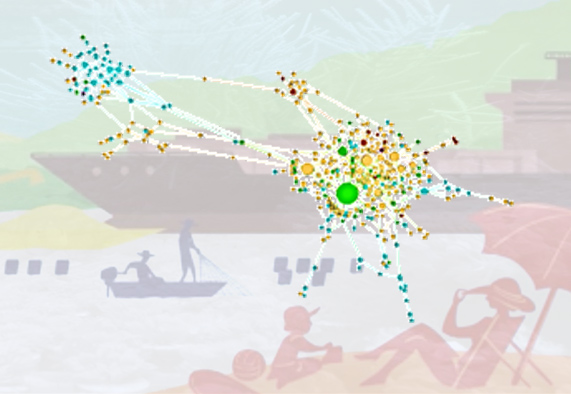Governance of coastal and marine ecosystems is complex: it involves social actors from multiple levels and scales, and their often conflicting agendas. Social Network Analysis (SNA) is a tool to visualise and analyse the connections between social actors in complex social systems. We apply SNA to governance networks that affect human-nature relations. Since ecological actors are an essential dimension of such analyses we are expanding SNA to include nature as a non-human actor. Our analysis of social-ecological networks (SEN) investigates social and social-ecological interactions and their governance.
We use social and social-ecological network analysis to:
- gain knowledge on network development over time
- analyse the role of social networks in transformation processes
- support innovative and sustainable production techniques
- inform environmental governance processes
- discover network-related implications for project planning and implementation
- empower stakeholders by using SNA for strategic planning
- facilitate conflict mitigation via comparing divergent perceptions of networks
- support project implementation by developing network scenarios with and for stakeholders
Aims
We will (1) develop a generic SEN model with time and actor decision variables and with a user surface for use in environmental assessment and conservation management, (2) develop a conceptual model of social networks in transformation processes in order to inform decision-makers on how to support/achieve desirable network structure and (3) publish a handbook entitled: Social Network Analysis for Environmental Governance and Management: A Practical Guide.
Project Partner |
|---|
|
Projeto Babitonga Ativa Grupo Pro-Babitonga MariTA-Project University of Goa National Institute of Oceanography Goa |





